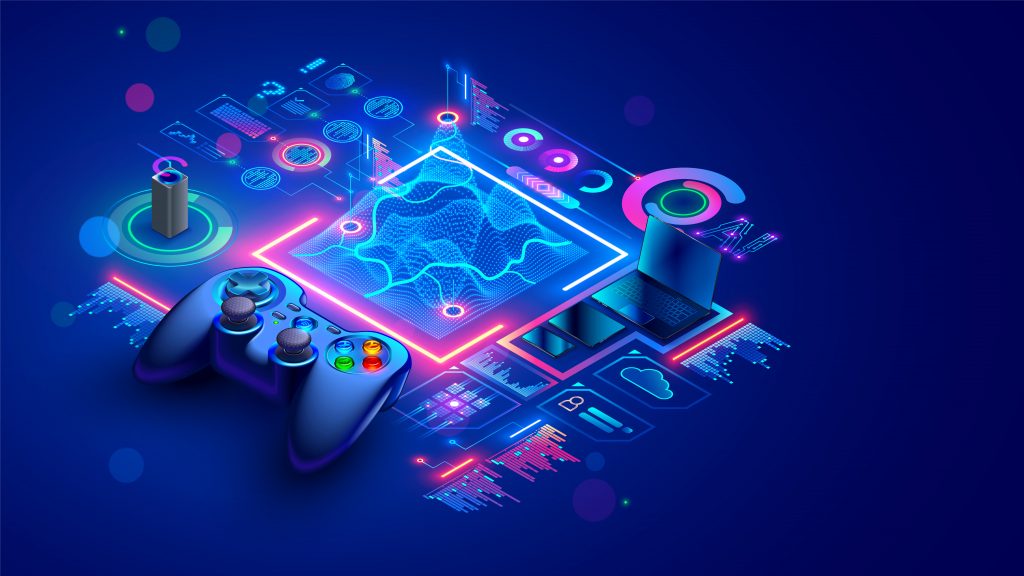Entertainment
Gaming and Technology Integration
by Author
-
Saturday, December 9, 2023
184 Views
https://trysomenews.com/ Gaming and technology integration have become inseparable, shaping the landscape of the gaming industry. This article explores the evolution of technology in gaming, its current impact, and the potential it holds for the future. PreK Enrollments in Abu Dhabi, Khalifa, Al Bateen, Mbz, UAE
Evolution of Gaming Technology
From the pixelated screens of arcade games to the photorealistic graphics of today, gaming technology has come a long way. Technological advancements have not only enhanced visual elements but also revolutionized gameplay mechanics. https://handshakemag.info/
Virtual Reality (VR) and Augmented Reality (AR) in Gaming
The introduction of VR and AR has elevated gaming to new heights. VR immerses players in virtual worlds, while AR overlays digital elements onto the real world. Games like “Beat Saber” and “Pokémon GO” showcase the potential of these technologies.
Cloud Gaming Services
Cloud gaming services have democratized access to high-quality games. Gamers can now play resource-intensive titles on low-end devices, thanks to the processing power provided by cloud servers. This has ushered in a new era of accessibility and convenience.
Artificial Intelligence (AI) in Gaming
AI plays a pivotal role in modern gaming, enhancing non-player character (NPC) behavior, creating dynamic environments, and personalizing gaming experiences. Games like “The Last of Us Part II” demonstrate the narrative depth AI can bring to storytelling.
The Role of Technology in Game Design
Advancements in technology influence game design principles. From open-world exploration to branching narratives, technology empowers designers to create more immersive and engaging gaming experiences.
Gaming Platforms and Hardware Innovations
The diversity of gaming platforms, including consoles, PCs, and mobile devices, caters to a broad audience. Hardware innovations, such as faster processors and graphics cards, contribute to the ever-evolving capabilities of gaming devices.
Challenges and Opportunities in Gaming Technology Integration
While technology integration has brought immense benefits, challenges like compatibility issues and high costs persist. However, these challenges also present opportunities for the industry to innovate and overcome obstacles.
Impact on User Experience (UX)
Technology enhances the overall user experience by offering stunning visuals, responsive controls, and engaging narratives. Striking a balance between advanced technology and user-friendly design is crucial for creating enjoyable gaming experiences.
E-Sports and Technology Advancements
The growth of e-sports is closely tied to technological advancements. High-performance hardware, low-latency internet connections, and advanced streaming technologies contribute to the success of competitive gaming.
Gaming Technology and Cultural Influence
Gaming technology has become a significant cultural influencer, shaping entertainment trends and reflecting societal norms. The popularity of gaming-related content on social media further highlights its cultural impact.
Gaming Security and Technology
As gaming moves into the digital realm, cybersecurity becomes a pressing concern. Protecting user data and ensuring secure online gaming experiences are paramount to maintaining the integrity of the industry.
The Future of Gaming and Technology Integration
The future holds exciting possibilities for gaming and technology integration. Emerging technologies like blockchain, haptic feedback, and neural interfaces promise to push the boundaries of what gaming can achieve.
Gaming Communities in the Digital Age
Technology has transformed how gamers connect. Online platforms, live streaming, and social media have created vibrant communities, fostering connections among players worldwide.
Conclusion
In conclusion, the symbiotic evolution of gaming and technology has redefined entertainment. From the early days of pixels to the immersive worlds of VR, the journey continues. The gaming industry will undoubtedly witness further innovations, shaping the way we play and experience games. Early Learning Center in Abu Dhabi , Khalifa, Al Bateen, Mbz, UAE






